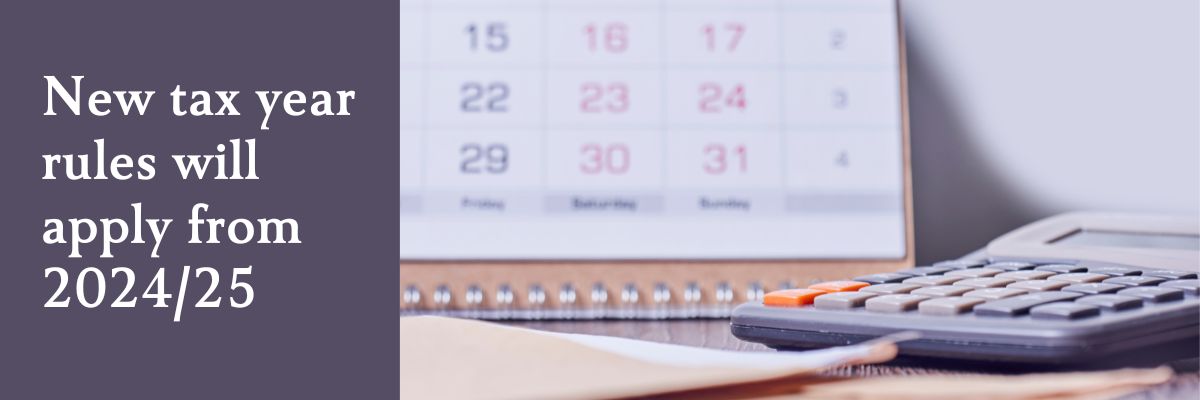Basis Period Reform: Will it affect your business?

Under current UK tax rules, unincorporated businesses are not required to produce accounts by a particular date: they can choose any accounting date they like. They are then usually taxed on profits or losses that arise in the 12 month accounting period (the basis period) up to the accounting date which falls in a tax year. This is known as the ‘current year basis’.
For example, suppose you are a sole trader who prepares your accounts annually to 30 September. For the 2022/23 tax year, your basis period for working out your tax liability will be your profits/losses for the 12 months up to 30 September 2022.
HMRC is reforming the tax rules by moving from the ‘current year basis’ system to a new ‘tax year basis’ system. This means that unincorporated businesses will be taxed on profits arising in the tax year, rather than on their accounting year, regardless of their period of accounts. This would align the taxation of trading income with that of non-trading income (e.g. income from property or dividends).
The new tax year basis will apply from 2024/25 with a transitional year being 2023/24. It affects all unincorporated businesses who do not have 31 March/5 April accounting year ends. Unincorporated businesses include the self-employed, sole traders and trading partnerships.
So, if your unincorporated business does not have a year end of 31 March or 5 April, for the 2024/25 tax year you will be required to apportion profits or losses across periods of accounts to adjust your results to the tax year basis.
If we consider the above sole trader example again, for 2024/25 the apportion would be ⁶/₁₂ of the profits for the period of account up to 30 September 2024 plus ⁶/₁₂ of profits for the period of account up to 30 September 2025.
This of course means that if the accounts to 30 September 2025 are not finalised, 6 months’ profits/losses will have to be estimated for the submission of the 2024/25 tax return and the tax return subsequently amended once the accounts are finalised. Working out estimates and submitting a second return will cause an additional administrative burden. And for some businesses, for example seasonal or farming businesses, accurate estimates will be very difficult to make.
HMRC has announced that 2023/24 will be a transitional year with specific tax rules. During this year, the basis period for continuing businesses will be the 12 months to the end of the accounting period ending within 2023/24 and the period up to the end of the tax year.
For our sole trader, this means for 2023/24 the basis period is all of the profit for the 12 months up to 30 September 2023 plus ⁶/₁₂ of profits for the period of account up to 30 September 2025. This could mean significantly higher tax bills for that year, perhaps even pushing some people into a higher tax bracket. Overlap relief brought forward may be available to set against the transitional profits, but this can be difficult to work out, especially for long-established businesses.
After a consultation, in acknowledgement of the increased administration burden and difficulty for certain businesses to make accurate estimates, HMRC has made some concessions which were revealed in the Finance Act 2022 including spreading relief, where the additional transitional profits in 2023/24 can be spread and taxed over 5 years.
HMRC is yet to confirm the final manner in which the estimates and revisions are to be given to them but the options currently being considered are:
- allowing taxpayers to amend provisional tax returns when they file their tax returns for the following tax year
- allowing taxpayers to include differences between provisional and actual figures in the previous year’s tax return when they complete next year’s tax return
- allowing an extension of the filling deadline for some taxpayers, such as complex partnerships and seasonal trades.
Hopefully, HMRC will give its final decision on this shortly so we can all start planning ahead.
In summary, if your business is unincorporated and your accounting date is not aligned with the end of the tax year, basis period reforms will affect you and could impact your cash flow.
We appreciate that this is not the easiest subject to explain. We will continue to review HMRC guidance and provide updates with proactive, and hopefully easy to understand advice, where needed. In the meantime, if you would like to discuss or clarify any of the issues raised, please do not hesitate to get in touch.


